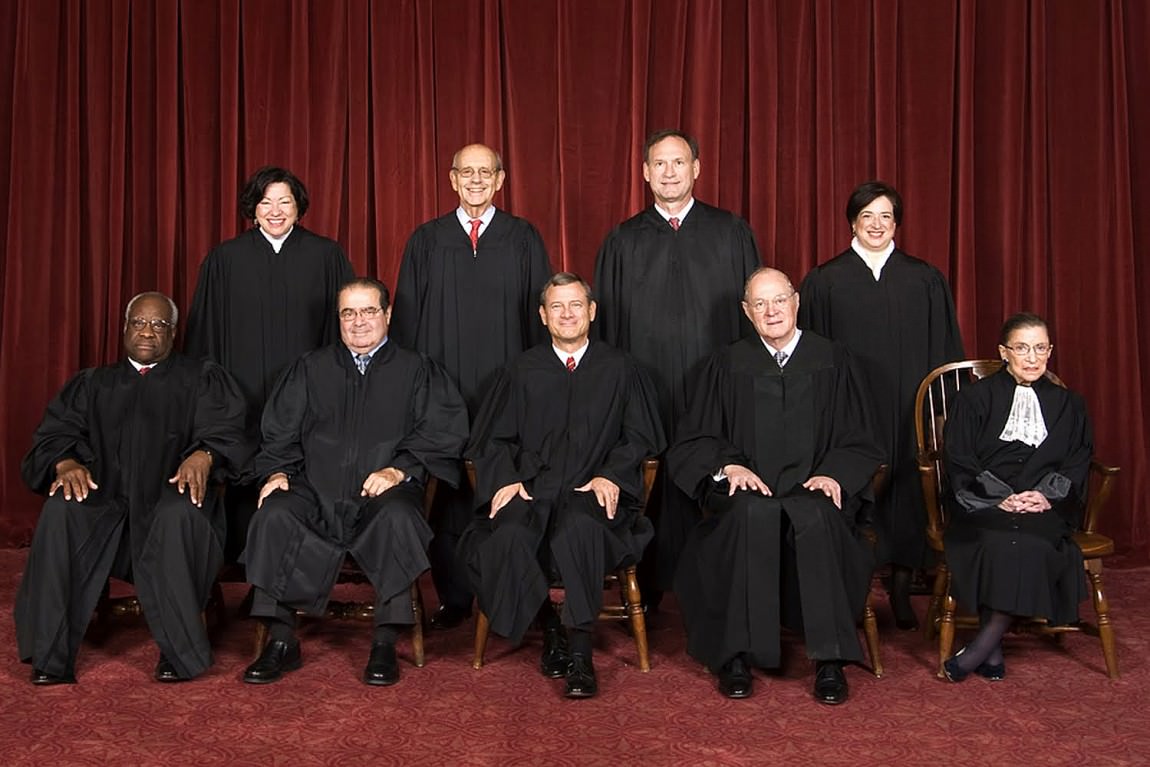


The Supreme Court will issue decisions on three days this week as it seeks to conclude its 2013 term a week from today.
Major cases argued last fall have been decided — on issues such as political donations, affirmative action and prayer at government meetings. Rulings on the most important cases argued since January will be handed down today and over the next eight days.
Here are eight potential blockbusters, in order of when oral arguments were held:
Presidential powers. This case pits President Obama against Republicans in Congress while the third branch of government serves as arbiter. It’s a challenge to appointments made by Obama to a federal labor board without Senate confirmation, because he claimed lawmakers were in recess. The Senate was meeting every three days in pro-forma sessions.
The ruling will implicate past appointments by presidents dating back to George Washington — and decide who has the upper hand between future presidents and Congresses when it comes to filling important executive branch posts.
Abortion clinics. This is a First Amendment challenge to a Massachusetts law that restricted demonstrators outside abortion clinics by setting up 35-foot buffer zones.
The court upheld an 8-foot buffer zone in Colorado 14 years ago, but the current court tends to favor free speech rights. During oral arguments in January, most justices wondered whether the Massachusetts law went too far in keeping protesters far away from patients
Labor unions. This case is crucial for the nation’s public employee labor unions, which could lose the right to represent workers who don’t want to pay union dues.
For decades, the law has allowed unions to collect dues from all private or public employees they are required to represent. Eight home-care workers in Illinois are challenging that law, arguing they should not be required to join, even though the union is required to represent them.
Greenhouse gases. This is the second of three cases testing the limits of presidential powers. Here, the justices must decide whether the government can require permits for industries that spew the primary pollutant causing climate change.
At issue is whether the Environmental Protection Agency went too far by changing the threshold for greenhouse gas emissions in the Clean Air Act. At stake: billions of dollars and thousands of jobs.
Securities fraud. The ruling in this case could topple a precedent established a quarter-century ago — one that lets investors sue companies for fraud that was hidden from being reflected in a stock’s market price.
The business community, with previous support from some justices, says that makes securities fraud cases too commonplace, costing companies millions to defend. Investor groups say any change would cheat shareholders.
Religious freedom. This is Obama’s third major test pending before the court. His health care law mandates that most employers provide health insurance coverage for contraceptives. For-profit companies with religious objections are challenging.
The administration has exempted churches and religious non-profits from the requirement, and the companies contend that the Religious Freedom Restoration Act protects them as well.
TV broadcast rights. The way Americans watch television could be changed if Aereo, an Internet start-up, wins its effort to continue sending live TV signals over the Internet to customers for far less money than cable companies charge.
Aereo is able to do it by housing and assigning to each customer a dime-sized antenna. That way, a lower court has ruled, the company does not have to pay retransmission fees to the nation’s major broadcasters. Those fees are crucial to their business model.
Cellphone privacy. These two cases are forerunners of a genre that could dominate the court’s docket in years to come: the battle between privacy and technology.
The court must decide whether police acted legally by searching suspects’ cellphones before getting search warrants. Police can conduct a limited search upon arrest, mostly for personal safety and the safekeeping of evidence. The question is whether cellphones hold too much private information.
Get all of the latest headlines and news as it happens.
Thank for visiting nationalblackroberegiment.com. In efforts to comply with the new GDPR regulations we have created a Privacy Center for your convenience.